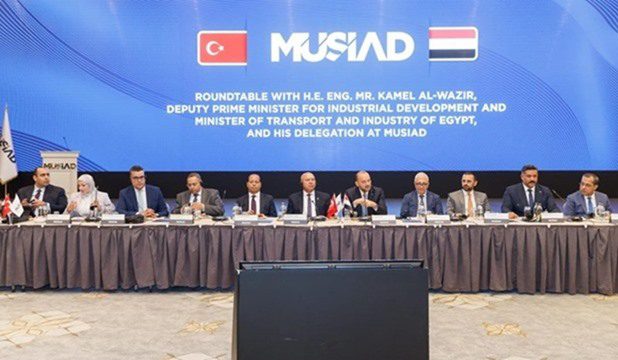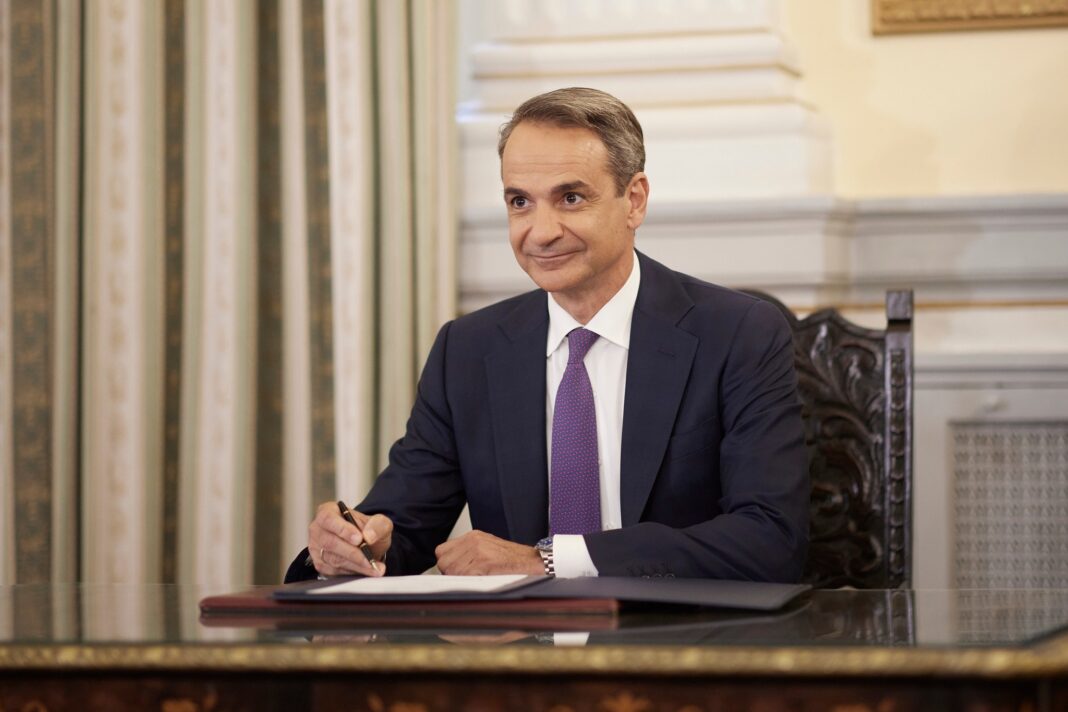By State Information Service of Egypt,
Egyptian Deputy Prime Minister for Industrial Development and Minister of Industry and Transport Kamel el Wazir asserted that Egyptian-Turkish cooperation can play a pivotal role in advancing development across Africa.
“This can be achieved via joint projects such as port development, the establishment of cross-border railway lines and the launch of new logistics corridors to boost intra-African trade and open new markets for the continent’s products,” Wazir said.
This came during Wazir’s remarks while participating in the 2025 Global Connectivity in Transport Forum, held in Istanbul with the participation of Turkish President Recep Tayyip Erdoğan, officials from 70 countries and a wide range of international stakeholders.
Wazir held a series of meetings with senior policymakers and industrial leaders to strengthen global partnerships in the fields of industry and transport, in alignment with Egypt Vision 2030 and its strategic drive toward regional and international integration.
Wazir noted that Egypt is working to realize a leap in its transportation sector through a national strategy aiming to have smart and sustainable transport, boost infrastructure, and promote regional-international connectivity.
Wazir added that Turkey stands as a vital partner in this journey due to shared interests and strategic potential.
During a ministerial session titled “the future of connectivity in a fragmented world”, attended by Turkish Foreign Minister Hakan Fidan and high-level representatives from the UN and the International Transport Forum, Wazir stressed the strong ties between Egypt and Turkey and the critical role of the transport sector in driving sustainable development and regional integration.
He remarked that transport integration is no longer an option, but a necessity in light of today’s global supply chain disruptions, climate challenges and accelerated development demands.
“The forum serves as a valuable platform for sharing insights and experiences and discussing ways to enhance regional and global transport connectivity in a manner that benefits people and fosters sustainable development,” he said.
Wazir highlighted Turkey’s strategic geographic position and vast logistical capabilities, which place it at the heart of the global transport network.
He asserted Egypt’s commitment to deepening cooperation with Turkey across maritime, land, and air transport, to build efficient trade and shipping corridors that connect Asia, Africa and Europe.
He underscored the importance of establishing resilient and flexible multi-modal transport corridors, built on coordinated planning and institutional cooperation among nations.
These corridors, he explained, must be capable of withstanding crises and offering secure, efficient alternatives during disruptions.
“In line with the directives of President Abdel Fattah El Sisi, Egypt seeks to benefit from its unique geographical location on the Red Sea and Mediterranean Sea and the Suez Canal,” he said.
He emphasized that Egypt is actively working to position itself as a global hub for trade and transportation.
Wazir explained that the Ministry of Transport is pursuing a strategic plan to link national logistics corridors with major regional and international transport routes, thereby reinforcing Egypt’s role as a global transit center that bridges key production and consumption markets around the world.
Wazir highlighted that one of the most prominent dimensions of this integration is alignment with China’s Belt and Road Initiative (BRI).
“The route of the initiative begins in Fuzhou, China and extends through Vietnam, Indonesia, Bangladesh, India, Sri Lanka, and the Maldives, continuing along East Africa’s coastline, through the Red Sea and finally reaching the Mediterranean via the Suez Canal,” he said.
Egypt plays a central role in this initiative, particularly through the Suez Canal Corridor and its affiliated economic zone, which hosts major industrial and logistical projects involving Chinese companies, he added.
Wazir discussed Egypt’s potential integration into the India–Middle East–Europe Economic Corridor (IMEC), which links India, the UAE, Saudi Arabia, Jordan and Europe through two key routes including the Eastern Corridor (India to the Gulf) and the Northern Corridor (the Gulf to Europe).
He confirmed that with the completion of three key logistics corridors, Taba/Arish, Sokhna/Alexandria and Safaga/Qena/Alexandria, Egypt is well-positioned to become a strategic partner in this corridor and has submitted several proposals to that effect.
Wazir stressed that Egypt’s strategic integration efforts are not just about being a passageway, but about becoming a center for production, logistics and global distribution.
“This strategic connectivity is one of Egypt’s most powerful tools for confronting global transformations, fostering mutually beneficial partnerships, and adopting a development model rooted in data-driven and flexible planning,” he said.
Wazir highlighted the strategic global significance of the Suez Canal, calling it one of the most vital maritime corridors in the world.
He stated that approximately 100 vessels transit the canal daily and if a single ship carries 24,000 containers, this represents over 2.4 million tons of cargo in one direction alone.
He asserted that the Suez Canal is indispensable to global trade, not merely as a transit route, but as a symbol of international connectivity and a model of leveraging geography for economic benefit.
With its strategic location linking the Red Sea and the Mediterranean, the canal is the shortest, fastest and most cost-effective maritime route between Asia and Europe, surpassing all alternative routes, he added.
Wazir also pointed to the economic zones developed around the Suez Canal, particularly in East Port Said to the north and Ain Sokhna to the south, which now host ship repair yards, refueling stations and logistics services. These areas have transformed the canal from a simple waterway into a global economic corridor serving international trade and logistics for Africa, Asia and the world at large.
On the sidelines of the forum, Wazir met with Bulgaria’s Deputy Prime Minister and Minister of Transport and Communications, Grozdan Karadzhov to discuss expanding bilateral cooperation in the fields of transport, industry, ports and technology.
Wazir asserted the deep-rooted ties between Egypt and Bulgaria, noting that their decades-long relationshipdes and has always been marked by mutual respect and shared development goals.
Wazir outlined the major transformation Egypt is undergoing, especially in transport, highlighting a record infrastructure development plan launched over the past decade with investments exceeding EGP 2 trillion. This includes the creation of seven integrated international logistics corridors connecting production hubs, industrial, agricultural, mining and service, to maritime ports via fast, secure transport modes, passing through dry ports and comprehensive logistics zones.
Wazir reviewed Egypt’s ongoing modernization of its Red Sea and Mediterranean ports, including the construction of three new ports, raising the total number of Egyptian ports to 18, with 67 km of new berths added at depths ranging from 18 to 22 meters. These expansions include ports such as Berenice, Safaga, Ain Sokhna, Adabiya, and Nuweiba on the Red Sea and Arish, Port Said, Damietta, Abu Qir, Alexandria, and Gargoub on the Mediterranean — pushing the total berth length to 100 km.
Wazir extended an invitation to Bulgarian partners to enhance cooperation with Egypt across ports, maritime transport, and logistics, and to explore joint industrial ventures targeting the African market.
He emphasized the importance of technology transfer and localization, particularly in engineering, pharmaceutical, and food industries.





